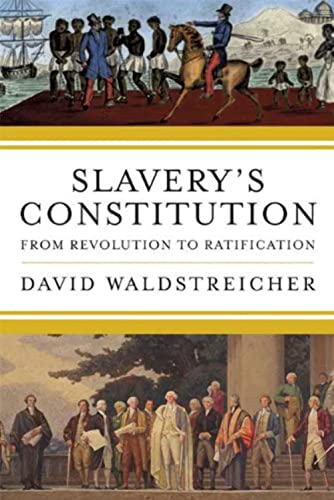Synopsis
Taking on decades of received scholarly wisdom, David Waldstreicher has written the first book to acknowledge the centrality of slavery to the origins and Language of the U.S. Constitution. Famously, the Constitution never mentions slavery. And yet of its eighty-four clauses, six are directly concerned with slaves and the interests of their owners. Five other clauses had implications for slavery that were considered and debated by the delegates to the 1787 Constitutional Convention and the citizens of the states during ratification. Neither a moral blind spot for America's otherwise enlightened framers nor the expression of a mere economic interest, slavery was as important to the making of the Constitution as the Constitution was to the survival of slavery. Slavery indeed was less than six degrees of separation from every major political issue in pre-Civil War America. One reason for this is that slavery was a major aspect of the American economy. The livelihoods of people in the North as well as the South depended on the products of slave labour, on import and export policies, and on the running of related services. Therefore, because the Constitution had economic implications and set the stage for a national economy, it could not avoid having implications for slavery, and creating a constitutional politics of slavery.
Présentation de l'éditeur
Taking on decades of received wisdom, David Waldstreicher has written the first book to recognize slavery s place at the heart of the U.S. Constitution. Famously, the Constitution never mentions slavery. And yet, of its eighty-four clauses, six were directly concerned with slaves and the interests of their owners. Five other clauses had implications for slavery that were considered and debated by the delegates to the 1787 Constitutional Convention and the citizens of the states during ratification. This peculiar institution was not a moral blind spot for America s otherwise enlightened framers, nor was it the expression of a mere economic interest. Slavery was as important to the making of the Constitution as the Constitution was to the survival of slavery. By tracing slavery from before the revolution, through the Constitution s framing, and into the public debate that followed, Waldstreicher rigorously shows not only that slavery was actively discussed behind the closed and locked doors of the Constitutional Convention but also that it was deftly woven into the Constitution itself. Finding meaning in silences that have long been ignored, Slavery s Constitution is a vital and sorely needed contribution to the conversation about the origins, impact, and meaning of our nation s founding document.
Les informations fournies dans la section « A propos du livre » peuvent faire référence à une autre édition de ce titre.
